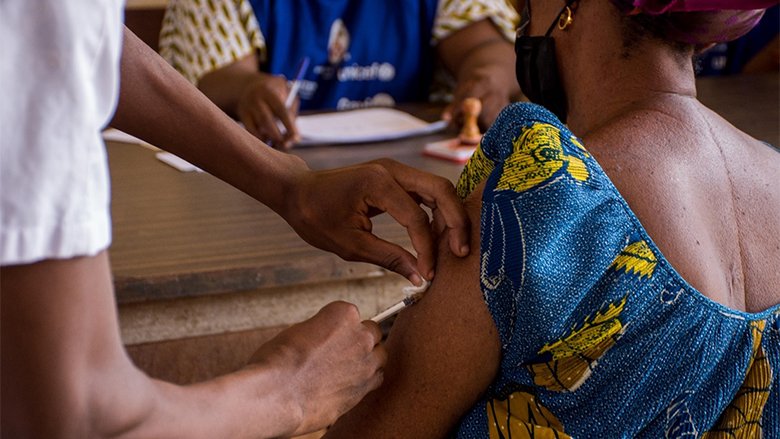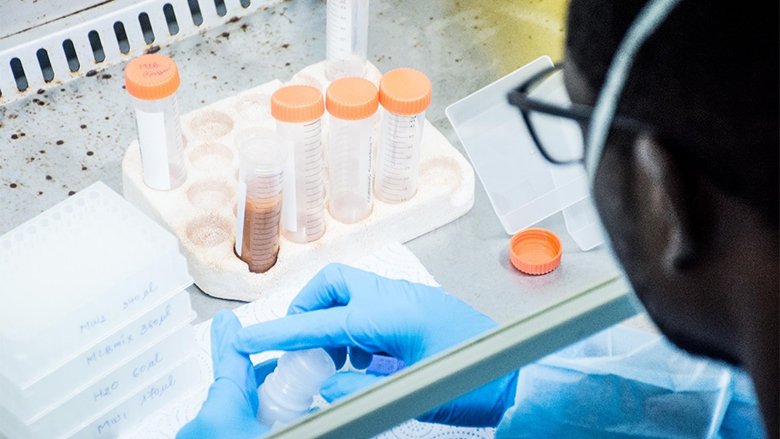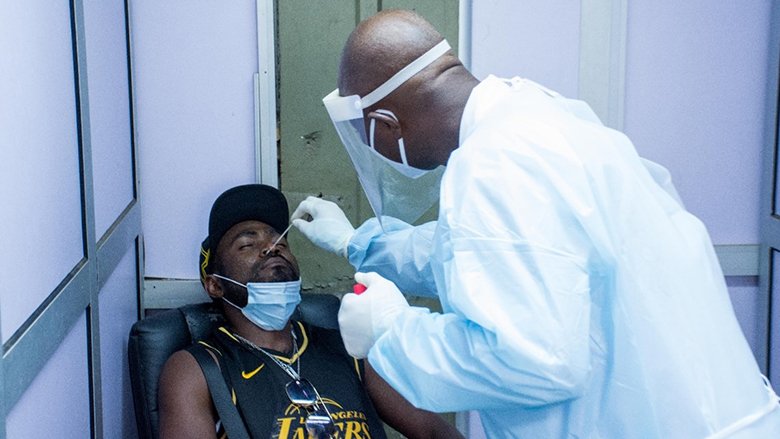LOME, September 30, 2022. Félicité is a heroine in the fight against the health crisis in Togo. A hygiene assistant at the National Institute of Hygiene (INH) in Lomé, she is one of thousands of health workers on the front lines of the fight against COVID-19. After a tough two-year battle, the return to normal life is a real relief for her.
“There are no more lockdowns or curfews, health restrictions have been lifted, cultural and sporting activities have resumed, and people are going to the beach; I am happy to have contributed to this fight,” she says. “It wasn’t easy getting this result because people were hesitant to get the COVID-19 vaccine. But now the pandemic has definitely subsided because of awareness raising, vaccination campaigns, and advanced strategies that involve vaccinating people in remote areas.”
Misinformation was rife on social media in the first weeks of the vaccination campaign and sowed doubt in people’s minds about the vaccine’s reliability. Actions have been undertaken by the Togolese government to increase community awareness, build trust, and better inform the population, which helped increase acceptance of and demand for COVID-19 vaccines.
The INH laboratory - a major asset



